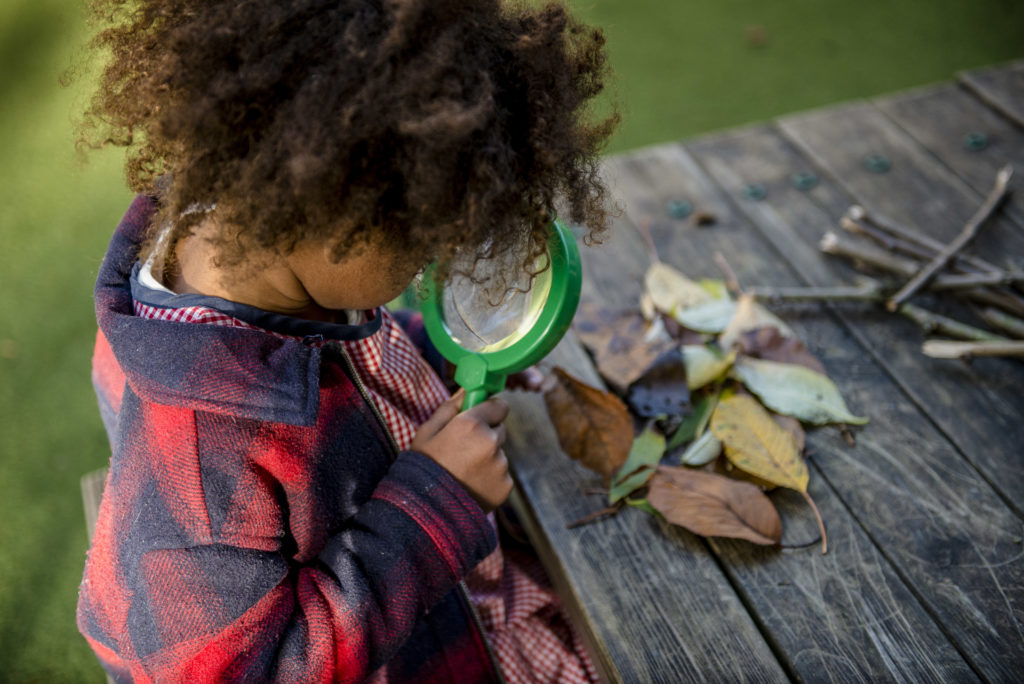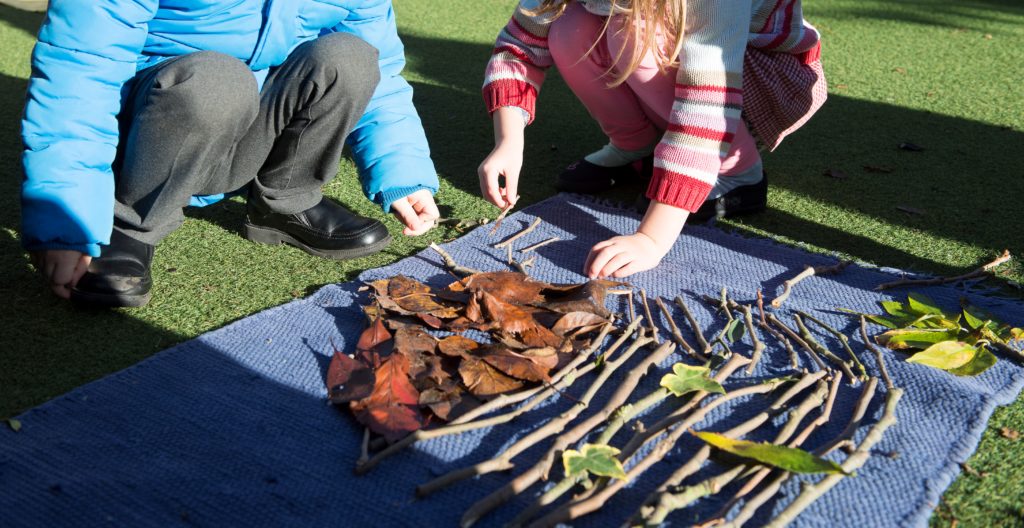The WMS Forest School is a child-led approach to learning, incorporating children’s right to play, to access the outdoor environment and to feel success. Forest Schooling is a unique way to build independence and self-esteem in young children, encouraging self-respect, respect for others and respect for the environment.

The 6 Principles of Forest School
- Forest School is a long-term process of frequent and regular sessions outside, rather than a one-off visit. Planning, adaptation, observations and reviewing are integral elements of Forest School.
- Forest School takes place in a suitable outdoor environment to support the development of a relationship between the learner and the natural world.
- Forest School aims to promote the holistic development of all those involved, fostering resilient, confident, independent and creative learners.
- Forest School offers learners the opportunity to take supported risks appropriate to the environment and to themselves.
- Forest School is run by trained Forest School practitioners who continuously maintain and develop their professional practice.
- Forest School uses a range of learner-centred processes to create a community for development and learning.
Benefits of Forest School
Forest School has been shown to benefit all children in the following key areas of learning:
- Experimentation, mistakes, repetition and improvements.
- Risk management.
- Improved speaking, listening and vocabulary.
- Physical mobility and agility.
- Increased self-confidence and awareness of the needs of others.
- Increased knowledge and understanding of the natural world.
- Learn knots, weaving, tool use, fire lighting and working with wood, plants and soil.
- Problem solving and collaboration.
- Increased focus and interest in learning.

What to expect at Forest School
Outside exploits include building dens, digging clay mines, and creating museums for natural treasures found in the outdoors. Children have made map-sticks, elder bead jewellery and whittled wands, pencils and flag poles.
Children will need boots or wellies, a hat, waterproof all-in-one, gloves and layers of clothing for the winter. Long sleeves and trousers should be worn even in the summer to protect from sun, scratch and bites.
What Forest School promotes
Communication and Language
Forest School is the perfect environment for the child to use their own voice. The use of role play, imagination and creativity is encouraged to help the child develop. The children’s listening and attention skills are developed through following instructions and expressing opinions.
Physical Development
Gross motor skills are developed by digging, climbing, lifting and exploring. Fine motor development is refined with regular use of tools or equipment. Children use real materials and develop practical skills to use every day.
Personal, Social and Emotional Development
Children are independent and are encouraged to choose their own activities during the session. At Forest School children develop their self-esteem and confidence through decision making and evaluating risk. The ground rules and routine help the children understand social boundaries and expectations. Children form strong friendships as Forest School takes place in small groups. Teamwork is encouraged when completing activities such as shelter building.
Literacy Development
We make tools for the children to use when mark making. Children can research plants and animals with resources and books.
Mathematical Development
The Forest School leader introduces games to help children’s understanding of shape, quantity and dimension. We encourage the children to evaluate risk and make decisions – both of which are important mathematical tools. Being in the natural environment helps the child develop and refine all the senses.
Understanding the World
Forest School is a hands-on learning experience of the natural environment. The sessions will teach children respect for the natural environment, animals and other people. At Forest School children explore and make decisions themselves, thereby developing their own scientific mind.
Expressive Arts and Design
Children develop their role play and imagination skills. Art activities can be planned to help the children further develop their creativity.

